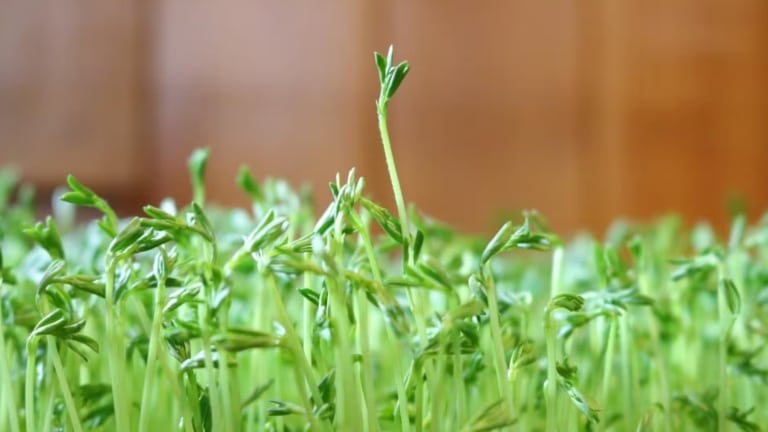The ingredients of sprouts and microgreens are rich in valuable nutrients such as vitamin A, B vitamins, trace elements, secondary plant substances, minerals and phytochemical compounds. In this respect they are in no way inferior to their adult vegetable counterparts. However, the vegetables that have had time and space to develop to their full size require many times more digestive power so that the body can extract the same nutrients from them. Therefore, consuming sprouts and microgreens is a simple and powerful path to better health.
Sprouts as a builder of neurotransmitters
The high content of mineral salts in sprouts allows for better production of neurotransmitters in the brain. They also supply the brain with enzymes and amino acids, making it easier to rebuild neurons. Since, according to our favorite author, sprouts can also pull heavy metals from the brain, they are additionally valuable.
Which varieties are particularly suitable as sprouts?
Sprouts are carriers of increased biotics
Sprouts and microgreens also do amazing things in defending against infections and against unwanted cell growth, such as cancer. He points out that sprouts and microgreens are the carriers of so-called ‘increased biotics’, which in nature grow, among other things, on freshly grown germs and sprouts.
Increased biotics are absolutely necessary for the production of the body’s own vitamin B12. They create fantastic bacterial flora in the intestines and are the reason why nutrients and vitamins are actually absorbed or not and then made available to the liver. If these increased biotics are missing, the digestive system and liver are confronted with too many pests and cannot fulfill their true tasks optimally. These increased biotics can be easily supplied with sprouts.
For more practical growing tips, read this one too Articles about growing alfalfa sprouts.
Tips for the practical use of sprouts
- For noticeable benefits it is good to eat 100g per day.
- When you grow your own sprouts, then imagine them like little pets: they also thrive on friendship and absorb the energy of those around them and everything that is said around them. Therefore, always try to approach your sprouts with joy. Talk to them, encourage them, and touch their heads with your fingers as you pass them. Growing your own food means that food takes your individual needs and adapts your diet to provide you with optimal nutrition. Sprouts and microgreens are particularly good at adapting to your specific health needs because they are so adaptogenic.
- Sprouts like radish, broccoli, fenugreek, Kale and sunflowers should be consumed at lunchtime as they support your energy during the day. Bean and lentil sprouts should be consumed with dinner as they calm and relax the nervous system in the evening.
- You can spray your sprouts daily with liquid mixed with water Sea minerals mineralize even better so that the sprouts are charged with minerals during their development for the benefit of your health.
- A juice made from cucumbers, pea shoots, and sunflower greens can, over time, increase a person’s ability to see at night.
You can find recommendations for sprout jars, sprout towers and germination seeds at Sprout breeding.
German summary: Astrid Späth
